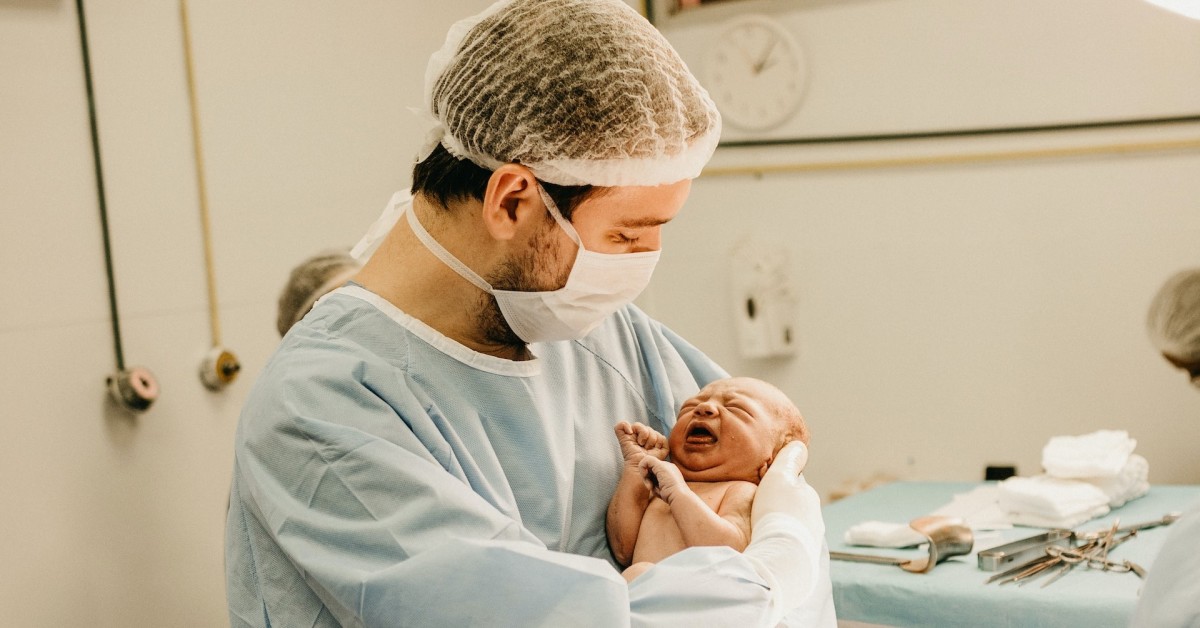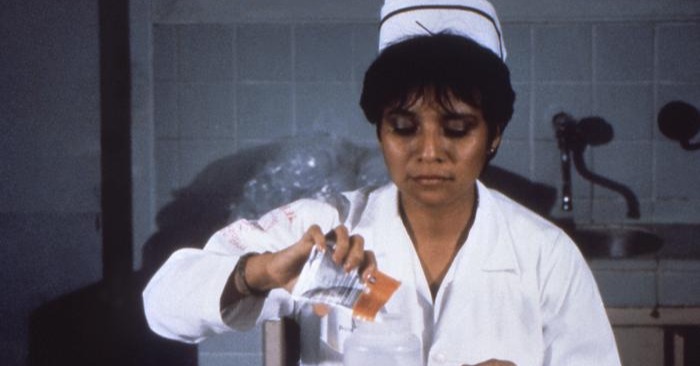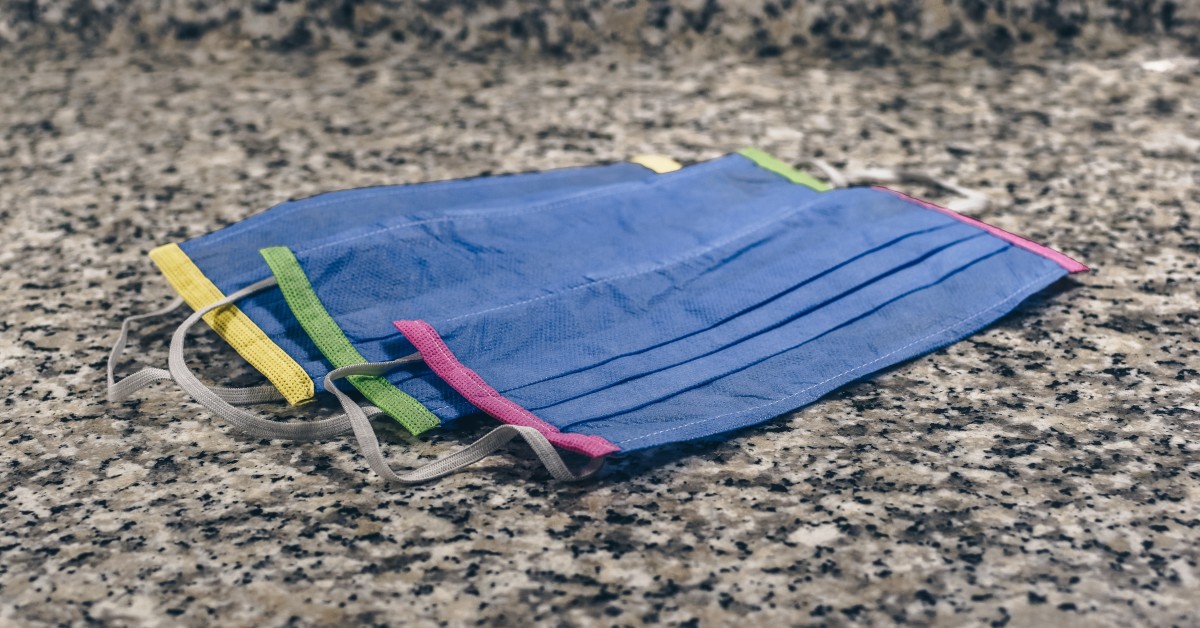
What Does a Family Nurse Practitioner Do?
Family nurse practitioners perform most of the same tasks as [...]

Christena Raines has worked in nursing for over four decades. She began her career as a staff nurse focused on women’s pregnancy and postpartum health. “Working in high-risk labor and deliveries formed my passion for women in the reproductive phase of their life,” Raines says of her early days, which inspired her to pursue a women’s health nurse practitioner degree and then a postgraduate degree as a psychiatric mental health nurse practitioner.
In the course of her nursing work, Raines witnessed postpartum women suffering from symptoms that presented as somatic issues but were alleviated with mental health services. Sometimes the approaches were as simple as listening and validating how the women were feeling after delivering their babies.
“These women needed a calm environment to process their feelings and to understand what was happening to them,” Raines says of her work opening the first in-patient Perinatal Mental Health unit in the country in 2011. Together with her colleague, Dr. Samantha Meltzer-Brody, Raines also co-founded the Perinatal Mood Disorder program at the University of North Carolina at Chapel Hill. Both efforts offer alternatives to treatment in a hospital’s psychiatric unit, which was not delivering the targeted care that the new mothers needed.
Raines’ training as a psychiatric mental health nurse practitioner afforded her a unique approach to her work in perinatal medicine and the types of mental and behavioral health care her patients required. Seeing this gap in care, Raines designed programs that directly addressed the mental health issues overshadowed by the birthing process and the physical symptoms accompanying childbirth.
Seeking new approaches to improve mental healthcare for their patients is just one of a psychiatric mental health nurse practitioner’s responsibilities. This article explores others, as well as the questions:
A psychiatric mental health nurse practitioner is an advanced practice registered nurse (APRN) with graduate-level training in psychiatric health care. After completing an accredited psychiatric mental health nurse practitioner Master of Science in Nursing (PMHNP MSM) degree program, PMHNPs are qualified to sit for the PMHNP-BC ANCC exam necessary for credentialing and licensure to practice in their state.
Psychiatric mental health nurse practitioners work in [clinical] and non-clinical settings like schools and correctional facilities and inpatient and outpatient clinical settings like hospitals, drug treatment centers, mental health clinics, and private practice offices. Increasingly, PMHNPs provide care to patients in underserved and rural communities through telemedicine or home visits.
The US Bureau of Labor Statistics (BLS) projects a 45 percent increase in jobs for nurse anesthetists, nurse midwives, and other nurse practitioners from 2020 to 2030— much higher than the average job growth for all other occupations. (Of the estimated 355,000 nurse practitioners currently practicing, only 4.7 percent of them have their primary certification in psychiatric/mental health.) PMHNPs also are well-paid, with a national average salary of around $147,000. PMHNP salaries tend to vary by state. The top five highest-paying states for PMHNPs are Washington ($159,000), Maryland ($154,000), New York ($153,000), Virginia ($151,000), and Colorado ($148,000). The lowest-paying include Kansas ($119,000), Mississippi ($116,000), Florida ($116,000), Georgia ($108,000), and Louisiana ($106,000).
So what is in a PMHNP’s job description and what are their responsibilities? Let’s examine the job duties of psychiatric mental health nurse practitioners to better understand their role in providing mental health care to patients.
Patients referred to psychiatric mental health nurse practitioners present physical or psychological symptoms—and sometimes both. Practitioners record patient medical histories, discuss past medications and health conditions, and assess a patient’s general physical and mental condition and capabilities. PMHNPs make distinctions between physiological and psychological-based disorders for a complete diagnosis and analyze any applicable test data needed to inform treatment.
Once a thorough diagnosis is made, psychiatric mental health nurse practitioners formulate treatment plans to address a patient’s condition. By reviewing and analyzing patient data, the practitioner collaborates with other healthcare professionals to develop care plans. PMHNPs then provide referrals for external health resources or treat patients themselves with individual, family, or group psychotherapy to address chronic or acute mental disorders. When treating overlapping mental and physical symptoms, PMHNPs carefully observe patients to adjust treatment regimens in response to any improvements or setbacks a patient may experience.
With a comprehensive diagnosis and treatment plan in place, practitioners may also prescribe medications to mitigate mental illness symptoms. Generally, PMHNPs can write prescriptions for psychotropic medications (though this depends on collaborative practice agreements, state regulations, and the state practice environment). As well, PMHNPs can administer drugs intravenously if needed and may manage the medicinal supplies and inventory for their hospital or clinic.
Throughout their nursing career, PMHNPS must focus on professional growth and development by participating in continuing education and conferences that address topics relevant to professional nursing careers. In addition to staying current on nursing care and medical knowledge, many PMHNPs provide guidance on nursing policies and treatment standards for the larger practice. They help develop practice protocols for mental health or substance abuse treatment based on evaluation and review of current published data and research.
Often teaching and outreach are significant components of any psychiatric nurse’s job, so PMHNPs must possess strong interpersonal and communication skills. They educate patients about treatment regimens, medications, care plans, or preventive health measures like stress reduction, and work with a patient’s family to explain medical conditions or test results. PMHNPs may reach out to community members to develop, implement, or evaluate programs or crisis response activities that benefit unique populations or help educate other medical staff in their practice.
Most PMHNPs start as RNs who hold an associate’s or bachelor’s degree in nursing and have accumulated years of experience working in the field. To become PMHNPs, they pursue a master’s-level nursing program, specifically a PMHNP Master of Science in Nursing (MSN). Completion of this master’s degree qualifies graduates to sit for the PMHNP-BC ANCC. The exam assesses clinical knowledge and skills, resulting in the Psychiatric Mental Health Nurse Practitioner (Across the Lifespan) Certification (PMHNP-BC) credential. Passing this exam enables PMHNP graduates to apply for specific state licensure, which allows them to practice as board-certified advanced practice nurses (PMH-APRN).
Once you have an associate’s or bachelor’s nursing degree, you’re eligible to apply to a psychiatric mental health nurse practitioner master’s degree program. Building on those two- to four-year experiences, the PMHNP MSN program takes an additional one to four years to complete, depending on the program design. For instance, CUNY’s Hunter College School of Nursing offers a 48-credit program with 640 hours of supervised clinical experience. Its full-time track takes 2.5 years to finish, while its part-time program takes four years. Graduates of this program meet the educational requirements for board certification by the American Nurses Credentialing Center (ANCC) and are eligible for New York State psychiatric nurse practitioner certification.
Eligibility for a PMHNP program includes an active RN license. To progress to certification and licensing as a PMHNP, you must complete master’s-level work in a program accredited by the Commission on Collegiate Nursing Education (CCNE), the National League for Nursing (NLN) Commission for Nursing Education Accreditation (CNEA), or the Accreditation Commission for Education in Nursing (ACEN). Graduates also must have undergone clinical training in at least two psychotherapeutic treatment modalities and at least 500 faculty-supervised hours of clinical practice.
As previously mentioned, completion of training allows graduates to register for the PMHNP certification exam. Once the test is passed, PMHNPs can apply for licensing in their state.
A PMHNP master’s program provides training in psychiatric-mental health clinical practice across the lifespan, meaning graduates possess experience and clinical knowledge of patient care for all ages. Coursework covers advanced pathophysiology, psychopharmacology, neuroanatomy and neurophysiology of the brain, health assessment and clinical reasoning, and healthcare systems and policy. Training also includes work with group and family theories, therapeutic modalities, and comprehensive psychiatric mental health assessment in pediatric, adolescent, adult, and geriatric practices.
Relevant topics and courses found in many PMHNP MSN programs include:
All PMHNP programs include preceptorships or practicums for hands-on work in various medical settings, including office-based private practice, community mental health centers, and acute and long-term care settings. While PMHNP programs teach similar material, each offers a unique experience to students. Yale’s clinical practice placements, for example, include weekly seminars for students and faculty to reflect on leadership development, theory, and skills applied to their on-site work (Yale’s online PMHNP MSN program begins enrolling students in Summer 2023). Practicum work at Vanderbilt University includes Foundational Practicum for Advanced Practice Psychiatric-Mental Health Nursing Across the Lifespan in the first term and three credits each in Practicum in Psychiatric-Mental Health Nursing with Individuals, Groups and Families, and a Psychiatric-Mental Health Nurse Practitioner Preceptorship.
(Updated on July 22, 2024)
Questions or feedback? Email editor@noodle.com

Family nurse practitioners perform most of the same tasks as [...]

A Doctor of Nursing Practice (DNP) degree qualifies you for [...]

The Doctor of Nursing Practice (DNP) is a terminal practice-level [...]

Licenced practical nurses (LPNs) deliver essential services to patients across [...]

RNs can become psychiatric mental health nurse practitioners (PMHNP) by [...]
Categorized as: Advanced Practice Nursing, Nurse Practitioner, Nursing & Healthcare